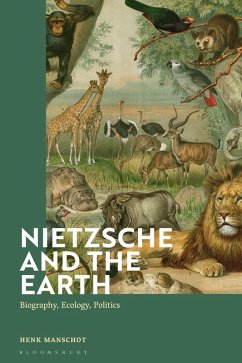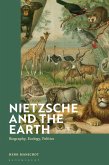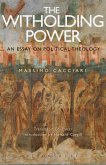Friedrich Nietzsche (1844-1900) loved nature and his daily walks in the Swiss Mountains and by the Mediterranean Sea heavily influenced his writing, and particularly his most famous book, Thus Spoke Zarathustra. By following the philosopher on these ramblings and reflecting on Zarathustra's (Nietzsche's alter ego) surprising interactions with the animals he meets on his way, Henk Manschot cleverly shows how all these experiences were reflected in the philosopher's thinking on the relationship between human beings and the Earth.
Working at the intersection of philosophy and environmental studies, Manschot presents key Nietzschean concepts as the foundations of an ecological 'art of living' for the twenty-first century. In a unique contribution to the field, he also introduces the concept of 'terra-sophy', which combines the notions of terra (earth) and sophy (wisdom), to contend that humans should reimagine themselves as in a reciprocal relationship with the planet. For Manschot, Nietzsche's thought can inspire humanity to move from a human to an Earth-focused relationship to the world; a shift in thought that would considerably benefit a generation facing an unprecedented ecological crisis.
Hinweis: Dieser Artikel kann nur an eine deutsche Lieferadresse ausgeliefert werden.
Working at the intersection of philosophy and environmental studies, Manschot presents key Nietzschean concepts as the foundations of an ecological 'art of living' for the twenty-first century. In a unique contribution to the field, he also introduces the concept of 'terra-sophy', which combines the notions of terra (earth) and sophy (wisdom), to contend that humans should reimagine themselves as in a reciprocal relationship with the planet. For Manschot, Nietzsche's thought can inspire humanity to move from a human to an Earth-focused relationship to the world; a shift in thought that would considerably benefit a generation facing an unprecedented ecological crisis.
Hinweis: Dieser Artikel kann nur an eine deutsche Lieferadresse ausgeliefert werden.









